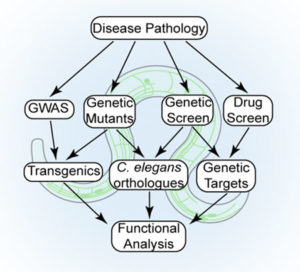- Opportunity to conduct cutting-edge research in neuroscience
- Opportunity to participate in professional development activities
- $10,000 stipend
- $5,000 for completing the summer research and developing a classroom research project to implement in the following school year.
- $2,500 for the implementation of the classroom project into their teaching.
- $2,500 stipend for the presentation of the project and participation in the Converse STAR Teachers of SC Conference.
- Reduced on-campus rate is available to residential teachers.
- $2,000 for materials and supplies to implement the classroom research project.
- Continuing Education Credit from Converse University.
BIORETS: Research Experience for Teachers
BIORETS Research Experience for Teachers
Through the Research Experience for Teachers in Biological Sciences (BIORETs) summer program at Converse University, middle school and high school teachers in South Carolina will have the opportunity to work in the research laboratories. Teachers will gain hands-on lab work experiences working side-by-side with scientists, will participate in professional development workshops, and have the opportunity to mentor high school students who are a part of the research program. Over the summer, teachers are will be mentored to develop at least one lesson plan they can implement in their classrooms during the following school year. Converse science and education faculty will serve as a resource for teachers and students throughout the school year.
We will select 6 teachers from South Carolina to participate in the Summer 2024 BIORETs cohort. All accepted teachers must be science teachers who have a contract to teach during the 2025 school year. Priority will be given to teachers serving in the Spartanburg and Greenville County Public Schools. If you have questions about the program, please email research@converse.edu.
Applications for 2024 closed on April 15, 2024.
Contact research@converse.edu for details about the program..
Key Dates
- April 15, 2024: Applications due
- April 21, 2024: Applicants will be notified of application status.
- June 17 – July 26, 2024: Research and professional development activities at Converse University
Contact Us
For questions please contact research@converse.edu
